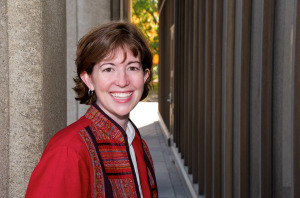Lisa Huisman Koops, Case Western Reserve University – Mobile Music Making
Car rides might be the optimal time to engage children musically.
Dr. Lisa Huisman Koops, associate professor of Music Education at Case Western Reserve University, details the closed environment of the car as an ideal location to musically bond with your kids.
Dr. Lisa Huisman Koops, associate professor of music education at Case Western Reserve University, specializes in early childhood music, general music, and world music education. She researches the interplay of enjoyment and agency in musical play. Koops has presented research in the fields of music education, ethnomusicology, and liturgical music; publications include articles in Journal of Research in Music Education, Research Studies in Music Education, and Early Childhood Education Journal. Koops taught general music in Zeeland (Michigan) Public Schools as well as early childhood music at MSU’s Community Music School; she currently teaches early childhood music classes at The Music Settlement in Cleveland.
Mobile Music Making
While a majority of research on music education occurs in classroom settings, the majority of music-making by children occurs elsewhere in homes, on playgrounds, in garages, and in vehicles. The music made outside the classroom is often child-initiated, and is thus a better indicator of a child’s involvement with music. Therefore, studying this area of musical interaction is vital to understanding children’s developmental relationship with music as they grow.
This research on young children’s music-making in the car confirmed my hunch that there is something special about the family vehicle for evoking musical expression and musical interaction between children, their siblings, parents, and others in the vehicle.
The children in the study sat in the back seat, separated from their parent in the front seat, and were strapped into carseats. Within these boundaries, we observed children engaging in an impressive array of music-making, including singing, dancing, listening to recorded music, and composing and improvising music, all documented in parent journals or videos.
Parents identified several advantages of the family vehicle as compared with the home. Reduced distractions, proximity to siblings leading to increased sibling interactions at times, and opportunity for reflection by both parent and child make the car the ideal place to study a child’s musical interaction and growth.
One example of musical reflection was shared in a video of a young participant asking her mom if she remembered a song they used to sing for good-byes and good-nights. A sweet connection between mother and daughter followed as they sang the songs together. This type of shared musical space and family enjoyment can nurture children’s musical development as well as provide extra musical benefits for both child and parent.



